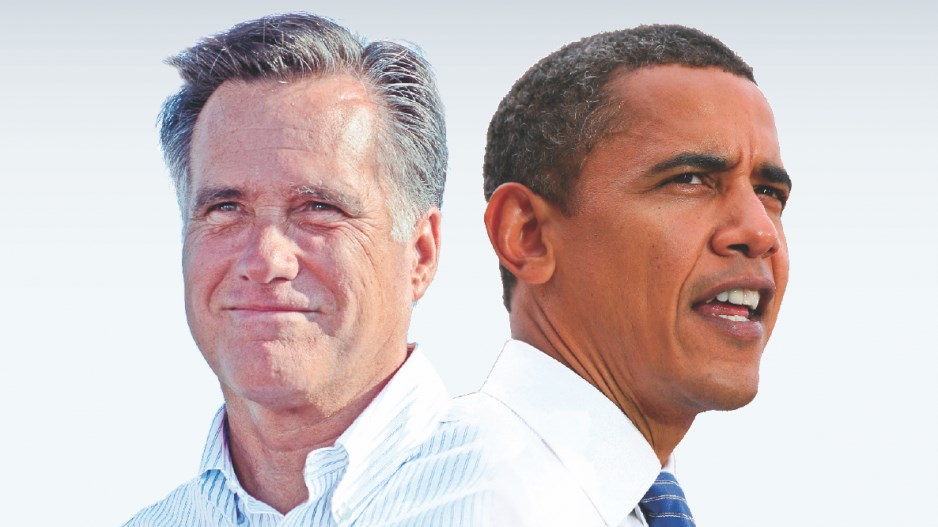BC manufacturers and exporters should benefit from a key U.S. presidential election campaign pitch that would return overseas manufacturing jobs to the continental U.S.
"A healthy U.S. manufacturing base is usually good news for Canadian manufacturers, given the integration [of the sector]," said Birgit Matthiesen, special adviser in Washington, D.C. for the Canadian Manufacturers and Exporters. "So many of our companies in North America are each other's best customer."
Many B.C. manufacturing sectors should benefit from a stronger U.S. economy. While B.C.'s forestry sector has continued to diversify its customer base, primarily by selling wood to China, the U.S. remains the key market for most commodity export sectors.
According to BC Stats, most of the province's agricultural (71%) and fish (57%) products thus far in 2012 have gone to the U.S.
Nearly three-quarters of B.C.'s exports of fabricated metal have gone south of the border and nearly two-thirds of the specialized machinery and equipment and other unclassified commodities the province manufactures has gone to U.S. markets. And a stronger U.S. market would support numerous high-paying manufacturing jobs, many of which are in the Lower Mainland. While the U.S. election campaign included talk of returning manufacturing jobs to the U.S. that were outsourced overseas, Greg Noble, a Vancouver tax partner at Ernst and Young, noted that's not likely to affect Canadian manufacturers.
"I don't think Canada was ever one of those countries where they pushed production because it was cheaper. Things that are manufactured in Canada are here because we do it very well."
A Business Council of BC (BCBC) report noted that more than 100,000 jobs in Metro Vancouver depend on the manufacturing sector. Less than 10% of the region's manufacturing jobs are in the forestry sector, though its impact is more strongly felt in other areas of B.C.
But in Metro Vancouver, more than 22% of manufacturing jobs are in food. The remainder is distributed across nearly 20 different industry segments. Combined, they provide jobs that pay $1,005 per week on average, 18% above the provincial average weekly wage of $858 as of September.
"They don't get a lot of visibility. Most aren't publicly traded, most are small and medium-sized enterprises," said BCBC executive vice-president Jock Finlayson. "But if you add them up, it's a fairly important chunk of the Lower Mainland economy."•




